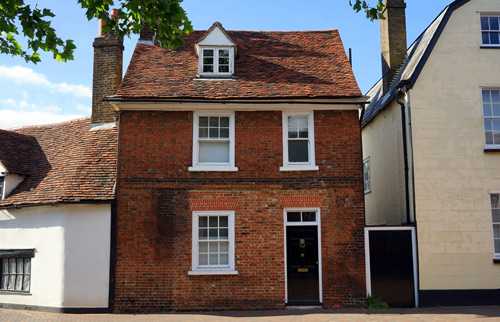
The steps to discovering your perfect mortgage can seem like a daunting and confusing process. Not only do you have to work out which mortgage will be the cheapest for you, which means looking at interest rates and fees, but also the huge range of different types of product available. But why should I choose one type over another? You might have heard various terms thrown around such as fixed, tracker or discount which all need to be considered when looking into mortgages. Here we explain the differences in order to help you work out which is the right type of mortgage for you.
The great thing about fixed-rate mortgages is that no matter what happens to the interest rates your repayments will stay the same throughout the period of the deal. This could be considered a bit of a gamble. If the rates decrease then you’ll be out of pocket. But if they increase you be laughing all the way to the bank.
It’s down to you to decide which is best for you. Some people prefer having the piece of mind that they’re always paying the same amount each month. Typically you’ll fix your mortgage over a period of one to five years, though it is possible to get ten year fixed rates.
Your mortgage payments will remain the same, even if interest rates changed. This makes it great for budgeting and provides certainty.
You are tied in for the length of the deal, so if interest rates fall you can’t take advantage of them. For example, if you opt for a five-year fixed-rate deal, you will be tied in until the fixed term ends. If you want to get out of the mortgage before then, you’ll be charged a hefty penalty – often thousands of pounds. So before you apply for a fixed rate mortgage, think about how long you are happy to be locked in for.
You can monitor how base rate changes will affect your mortgage repayments by using a base rate calculator.
The interest rate on a tracker mortgage is linked to the Bank of England base rate. So if the base rate changes, your mortgage rate will change.
For example, if the base rate was 0.50%, and you took a tracker mortgage with a rate that is 2% above the base rate you’d pay an interest rate of 2.50%. If the Bank of England put the base rate up to 1%, your mortgage rate would increase to 3.00%. This would add about £25 a month to the repayments on a £100,000 mortgage.
As with fixed-rate mortgages, trackers are available over different terms: most commonly two or five years. With these deals, you’ll be charged a penalty if you want to get out of the mortgage during the term.
You can also get lifetime, or term, trackers and these are often completely penalty free so they are very flexible and can be a great option if you don’t want to be tied into your mortgage.
The rates on the leading tracker mortgages tend to be lower than on fixed-rate deals. Trackers are popular during times of low or falling interest rates. If you choose a tracker because you think the base rate is on a decline always be prepared for the worst.
Although trackers are variable rate mortgages, it’s easy to understand what rate you’ll be paying because they are directly linked to the base rate. Therefore, the rate and your monthly payments will only change if the Bank of England changes the base rate.
You don’t have the same security with a tracker that you get with a fixed mortgage because the rate is variable. This means you have to be prepared for the fact that your monthly repayments could go up – and it’s really important to make sure you’ll be able to still afford your mortgage if this happens. If money is tight and you need to budget carefully, a fixed rate mortgage will probably be a better option.
Trackers aren’t the only type of variable mortgage. Discounts are another. However, unlike trackers, the interest rate isn’t linked to the Bank of England base rate. Instead, it’s linked to the lender’s standard variable rate (SVR) and this is a significant difference because lenders can change their SVR even if there has been no change in the base rate.
Discount mortgages are available over different terms – typically one to five years – and as with trackers and fixed rate deals you will probably be charged a penalty if you want to get out of the deal during the term.
In the past, this was often the cheapest mortgage rate type, but nowadays this is not always the case. Make sure to do enough research or ask a mortgage advisor before considering any mortgage deal.
A discount mortgage often is hindered by uncertainty. There’s no guarantee your lender will move its SVR down if the Bank of England base rate drops. You’re also got the potential issues of the lender increasing the standard variable rate. Remember, it’s not the size of the discount that counts, but the underlying rate. Always consider expert advice.